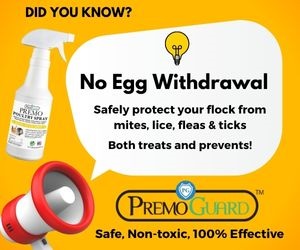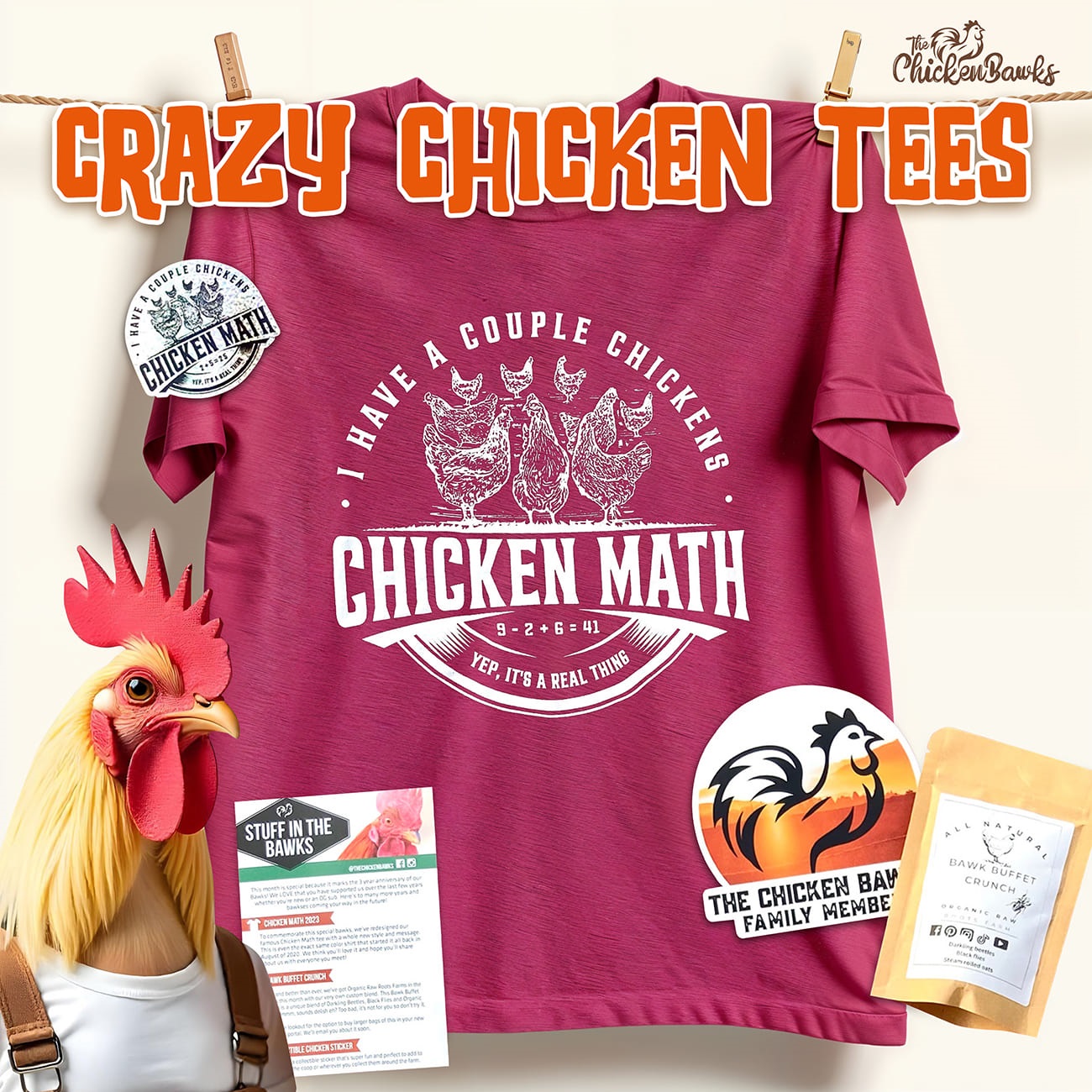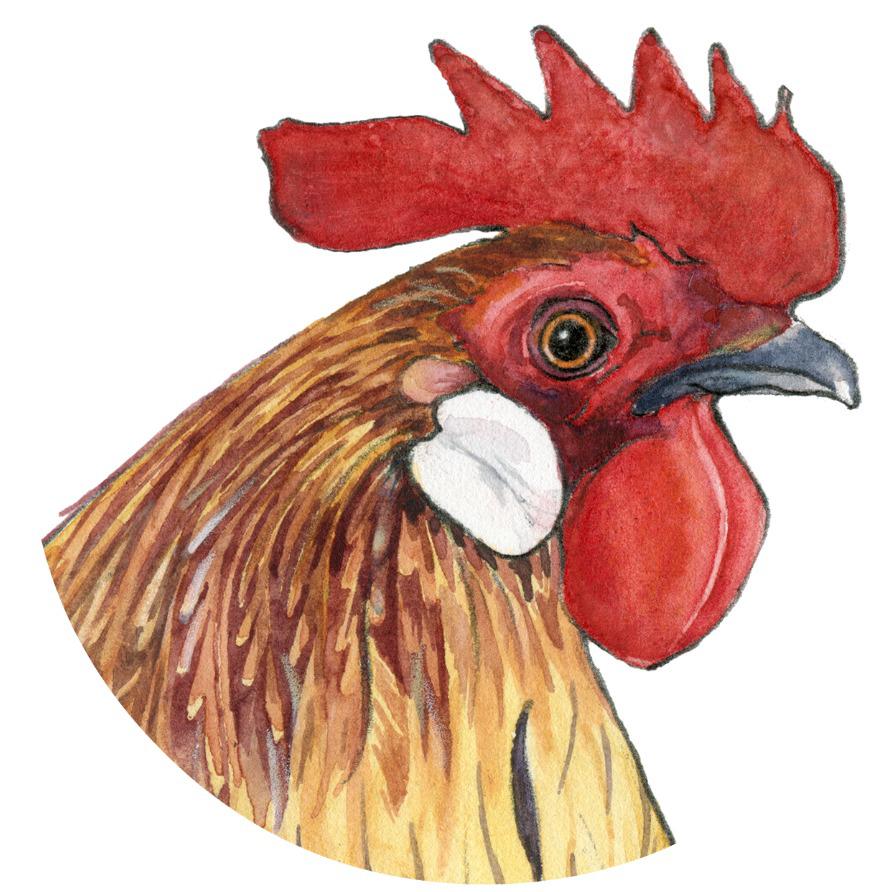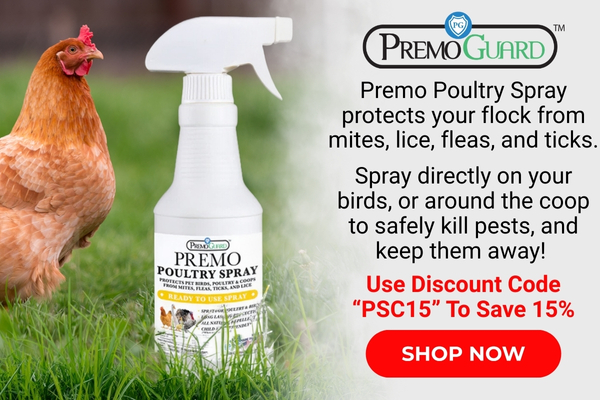Creating a Healthy, Happy Coop for your Poultry
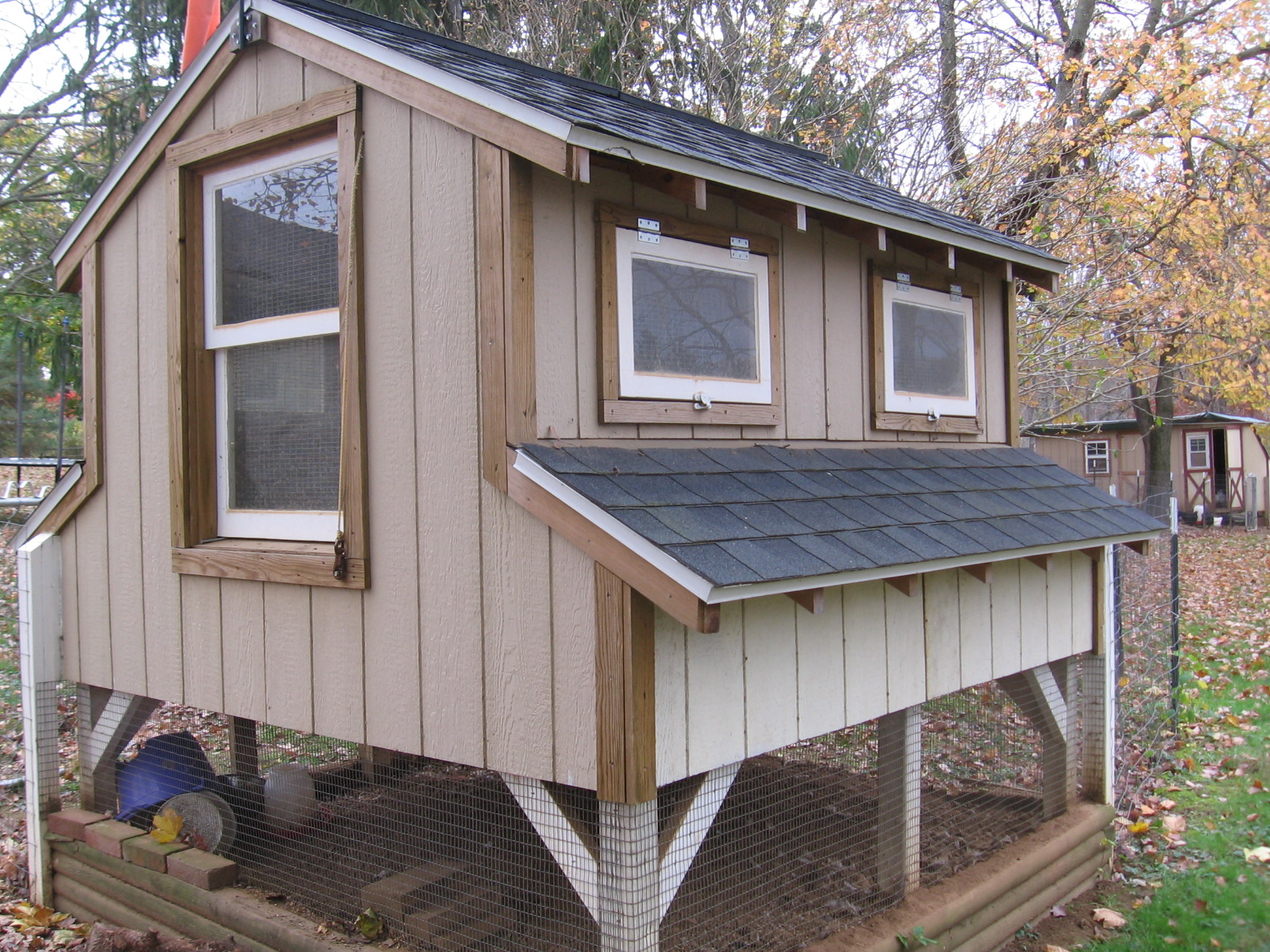
Whether you're just getting started or expanding your flock, planning ahead for what essential elements your flock needs in a coop is just plain smart! Whether you're planning a chicken castle or going strictly for functionality, you'll want to consider all these elements before you start sawing.
- Coop - There are two basic types
of coops, movable and fixed. If you're interested in having a
free-range flock, but without the risk of an open run and with the
capabilities to get them on fresh grass daily, a secure chicken coop
that has wheels and secure mesh sides may be the way to go for you. If
you're going for a fixed coop, it's not going anywhere and you'll want
to place it somewhere with ample space for a run. You should allow at
least 4 sq feet/bird, especially if your birds will not have a large
run. To keep your birds safe, the coop should be closed up each night.
If you want to take the easy route, you could even invest in an automatic chicken coop door which would close for you at a set time each night!
- Roosting Bars - The phrase "they always come home to roost" certainly makes sense if you have chickens. Chickens naturally can sense the setting of the sun and find their way back home and get settled in for the night on their roosting bar. There are endless ways to provide roosting bars, on ladders, with 2x4s, or with tree branches, but they are essential for healthy, happy chickens since they naturally expect them and they do most of their pooping at night so to be off the floor keeps them clean. You will want your roosting bars to be higher than your nesting boxes so chickens aren't tempted to roost in your boxes and makes them dirty. You should allow 6-12"/bird, depending on the make-up of your flock (obviously bantams need less and big roosters need more!) You want the roosts to be secure, not shaky and be over an area that can be easily and daily cleaned.
- Nest Boxes
- There are many kinds of nest boxes. They can be homemade or
purchased from a feed store or poultry supplier. You should allow at
least 1 ft x 1 ft x 1 ft to allow ample space for the hen to get
comfortable. Some people have found ways to modify 4 gallon plastic
buckets for nest boxes. A generous amount soft bedding also is
necessary to make hens comfortable while keeping eggs clean and
unbroken. The possibilities are endless, but the most common bedding is
wood shavings, hay, straw, even dried pine needles! Checking to be
sure the bedding remains clean and changing it regularly will help
tremendously in keeping your eggs clean. You should provide at least 1
nest box for every 5-6 laying hens. Nest boxes should always be lower
than the roosting bars to discourage roosting in the boxes. Nest boxes
with the capability to close them once eggs are layed and collected take
away the temptation. Nest boxes should be quiet, dark and clean. We personally have had a Kuhl 6-Hole Standard Nest Box for many years & our chickens have happily laid us hundreds of eggs. There are also roll-out options if you wish to ensure cleaner eggs.
- Light
- Windows are a huge help in keeping chickens laying productively.
When you choose the location of your coop, allow south-facing windows to
get the most benefit from the natural light of the sun. If you choose
instead to use an electric light, you can save energy by using a light
wattage that is just bright enough that you could comfortably read a
book. It doesn't take a lot of light, depending on the size of your
coop.
- Feeder and Waterer - Your chickens should have indoor access to both feed and water since a majority of their water intake is right after they get up in the morning, most likely before you will get out to open up the coop. Both the feeder and the waterer should be off the ground to avoid floor bedding to get feed and water dirty and to make it more comfortable for the birds. A good rule of thumb is to have the feed and water trays at back level. That height will vary based on the age and size of your flock. When various sizes are housed together, lower it to accommodate the shortest birds so they are certain to be able to reach. You will want to have a metal trashcan with a secure lid filled with extra feed for easy filling. I recommend metal to guarantee protection from any chewing pests that may hope to reach your feed supply.
- Easy to Clean
- I promise this is one element of your planning you will not want to
forget! Chickens are dirty and their coops require regular cleaning in
order to maintain healthy conditions. If cleaning is awkward and
difficult, it won't happen as often as it should! There are a lot of
great ideas out there to make it easy. Some coops have removable trays
that can be easily dumped and cleaned and returned. Some have used a
large piece of vinyl that is not attached to the floor so it can be
pulled out and dumped and returned. The most important part of your
coop to think through is under the roosting bars, since that is where
the majority of the waste will end up. Cleaning that daily will delay
the need for a total coop clean-out to far less frequency. If you plan
to just shovel it out regularly and replace the bedding, avoid having
obstructions or a lip at the doorway so it can be pushed right out the
door. While you're thinking about all this, think through where
you're going to put all your dirty bedding. Do you have a compost pile
or garden it can go on or have a neighbor who does? Dirty bedding is
great for fertilizer so if you don't have a compost pile, this is a
great reason to start one to use on your vegetable or flower gardens.
- Predator-proof - Predators can be one of the greatest challenges to any flock owner. You will want your coop to be secured tightly at night with no access for the myriad of predators lurking about. While there are some predators that strike during the day, which covered runs can help with, nighttime is a common time of attack. A door that secures with a latch and wire on the windows is a good start. To avoid burrowing animals, fencing can be buried underground. A less traditional way we have found to keep predators away is to train our dog to guard our chickens! If trained from a young age to "leave it", they can join you for your chores and their scent will discourage some predators.
So whether it's an empty shed, an upscale chicken "condo", or anything in between, these are the essentials to consider to ensure happy, healthy poultry & lots of eggs!
What can we help you find? Search the website:
What's New Around Here?
-
Madoc Poultry Club Summer Show
Information on the Madoc Poultry Club Summer Show -
FL - 2 pullets and 1 cockerel Modern Game chickens
Hi, my daughter hatched the three Modern Game Chicks. need to sell as she already has 8 other chickens of various breeds. I have 2 pullets and 1 cockerel -
Wanted: Female Whooper Swan
Call or text: 740-359-3913


